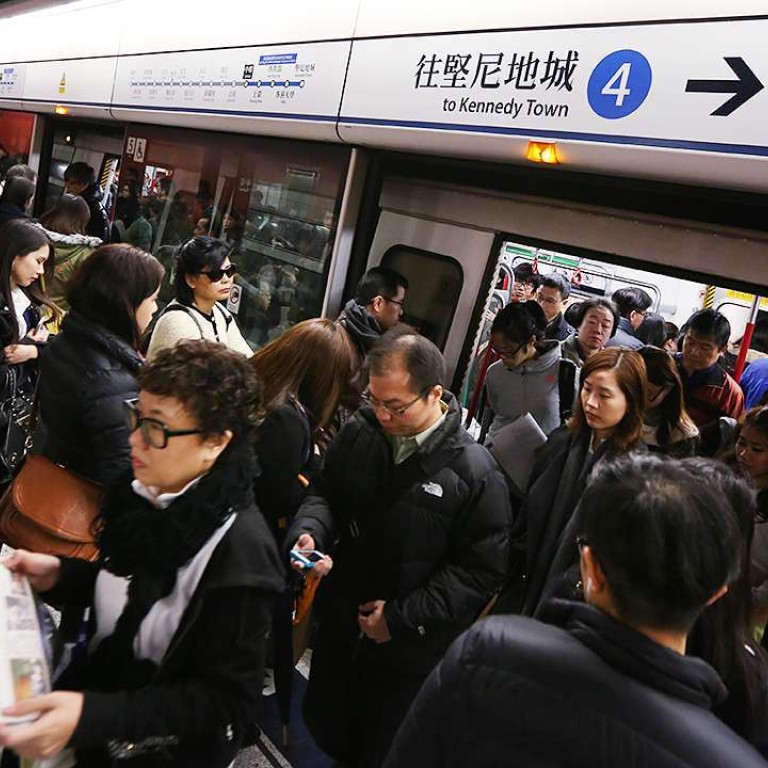
As a public utility, the MTR Corp should hasten its review of the fare adjustment mechanism
With HK$13 billion in profits last year alone, rail giant should not rely on a system for fare increases that is clearly flawed
A 2 to 3 per cent rise in transport fares should not come as too much of a surprise in times of inflation. But against the backdrop of a staggering HK$13 billion in profits and a deal that seemingly guarantees increases every year, the public can be excused for feeling upset. The 2.7 per cent rise in Mass Transit Railway fares is the seventh in as many years. Although the impact is likely to be eased through a package of fare concessions, passengers will still be paying more.
This state of affairs owes much to a widely criticised fare adjustment mechanism. Following the railway merger in 2007, MTR fares were supposed to rise or fall according to a formula that takes into account changes in wages for transport workers, inflation and productivity. But continuous wage increases and strong inflation mean there has never been a fare cut under the formula.
As a listed company, the MTR Corporation is required to maximise profits and be accountable to its shareholders. But being a public utility serving millions of people every day, it also has its social responsibilities to fulfil. The railway giant is setting aside HK$186 million this year for fare concessions, including HK$11 million as a penalty for service disruptions over the year. This is less than last year’s HK$220 million. The amount pales further against its HK$13 billions in profits . With its healthy finances, there is room to do more. Instead of providing periodic discounts to mitigate against the impact of fare increases, the MTR should consider more long-term concessions.
More importantly, the fare adjustment mechanism should be overhauled. The formula was last revised in 2013, with a cap to prevent unreasonably high increases. But it cannot curb an ever-rising trend.
With millions of commuters passing through its gates every day, the railway system is hailed as one of the most efficient in the world. Despite the increases over the past years, the fares are still comparatively low when measured against what commuters in other cities have to pay. But that perception is being challenged by more frequent service delays and cost overruns in new projects. This makes fare increases even more difficult to justify.
Earlier, the government asked the MTR to advance a review of the fare adjustment mechanism by one year. The move was seen as an attempt by the government to head off the pressure arising from the rise this year. The company should cooperate and keep fare adjustments at a reasonable level.

